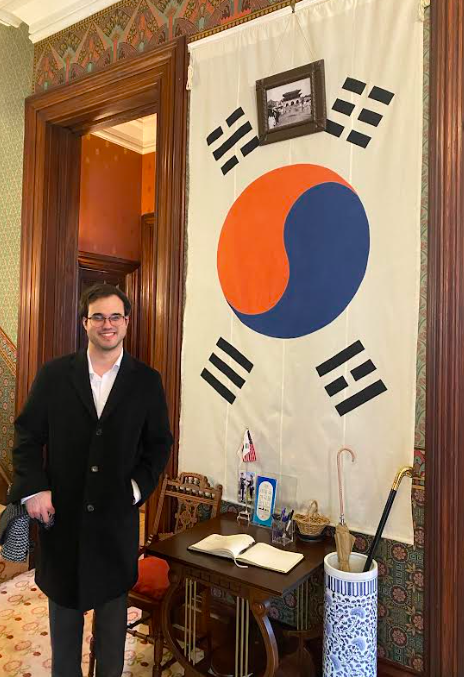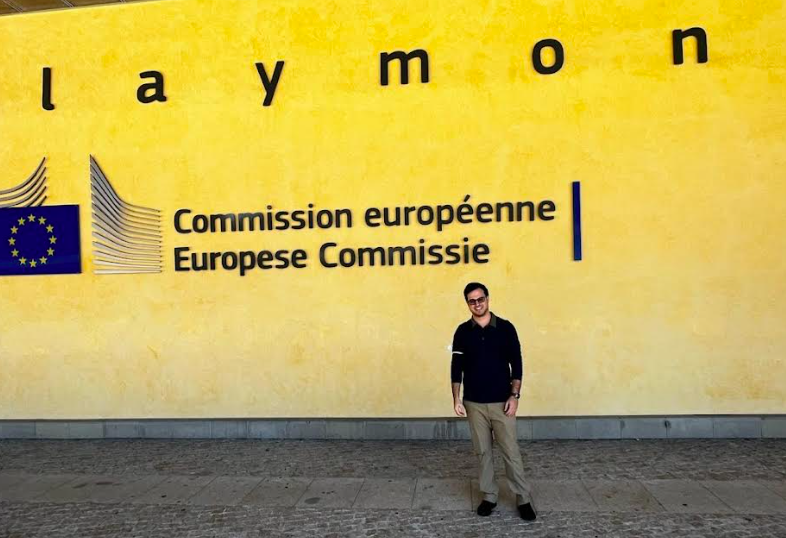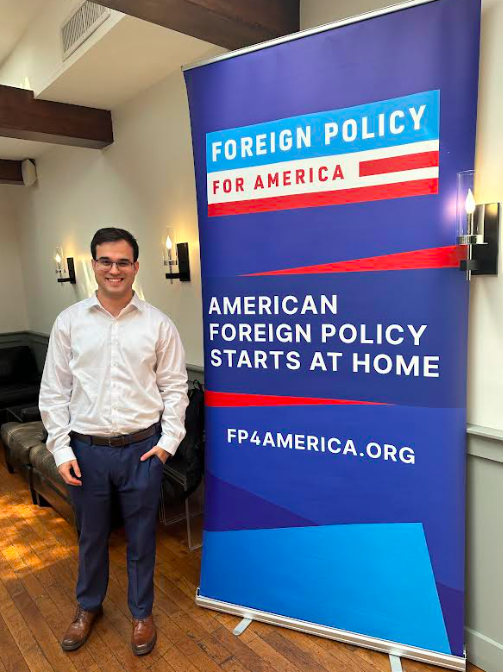From Cuba to DC: How Growing Up Under An Authoritarian Regime Led Me to Advocate for Diplomacy in US Foreign Policy
Ernesto Fraga March 27, 2024
Growing up in Cuba, I looked at the United States as the “city on the hill.” I remember
how my friends who had left Cuba for the U.S. described the country as an exemplar of peace
and human rights, a place where people are free to speak their minds and have equal access to
opportunities. Reflecting on this image, I thought to myself, “I would love to live in a place like
that.”
However, this image began to tarnish after the U.S. intervened militarily in countries like
Iraq and Libya. From an early age, I experienced how Cuba’s authoritarian regime used these
interventions to inspire fear in its citizens and gain legitimacy as a bulwark against U.S.
interventionism. I still remember watching cartoons depicting U.S. soldiers ready to invade my
country or shouting slogans in school against U.S. imperialism. Due to the tight control of the
government over the media, I saw how these narratives negatively influenced people’s views of
the U.S., seeing it less as a beacon of freedom and prosperity and more as an unpredictable and
violent enemy.

A few years after arriving in the U.S., I was astounded by the country’s profound
inequalities and polarization. Seeing the country in that state deeply saddened me since the
ideals and values I admired were at risk. By the time I started college, I had a burning
intellectual desire to understand the forces and circumstances that had led America down this
path, leading me to study international relations and politics. Throughout my classes, I realized
that the U.S.’s policies in the Middle East were not ill-intended, but ill-conceived and executed
and that the string of unsuccessful, expensive, and destabilizing foreign interventions had
deprived the country of valuable time and resources to invest in itself.
Witnessing how the Cuban government manipulated the U.S.’s over reliance on military
force, which threatens American values and liberties, inspire me to pursue a career advocating
for diplomacy and caution in U.S. foreign policy. I envision myself working across the aisle to make these two approaches the guiding principles of foreign policy decisions. I want to be the
voice of reason warning about the limits of American military power and the tragic cost of war.
Given the U.S.’s diplomatic power and influence on the international stage, I believe it is in a
unique position to advance peace and security with little to no use of military force.

The realization that a militaristic foreign policy could threaten the American values I
hold so dearly had a profound impact in developing my passion for peace and security issues.
For me and many other Cubans, the values and prosperity of the U.S. were an example of the
living standards that a country could reach to take care of its people. This example contrasted
sharply against the precarious living conditions we lived in, serving as a constant reminder that
we deserved better. It filled people with hope and inspired them to pursue similar standards.
Understanding what the U.S. ideals mean for people living under similar regimes like Cuba’s and
knowing the risk of losing them, fills me with a great sense of responsibility to ensure that our
foreign policy is consistent with those values.
As someone who has personally experienced the impacts of U.S. foreign policy, I hope to
use my voice to shed light on how U.S. military actions might impact people’s livelihoods and
the U.S. image and reputation in the eyes of ordinary people around the world. Throughout my
professional journey, I hope to induce long-term thinking into the debate of U.S. national
interests and ensure that strengthening our security does not come at the expense of others’
security. Moreover, living in Cuba for 15 years gave me a unique understanding of how other
governments, especially authoritarian regimes, might interpret U.S.’s well-meaning or self-
defensive actions as aggressive, or even imperialistic. Through my work, I hope to bring nuance
to the way we conduct our foreign policy to prevent miscommunications and exacerbating
tensions with other countries.

With the support of the Scoville Peace Fellowship and my host organization, Foreign Policy for America Foundation (FP4AF), I have already started pursuing my career and personal goals. During my fellowship, I have contributed to message guidance documents on the U.S. relation with China and Iran and the International Affairs budget, which equip an extensive national network of congressional offices and campaigns with nuanced messaging and data. Through these documents, I have helped prevent political rhetoric from narrowing policy options and increasing the risk of conflict while helping make diplomacy our tool of first resort.
Similarly, I have also contributed to briefings and memos on how to build the diplomatic
capacity of the U.S. State Department by making recommendations on how to improve the
Department’s internship programs to better attract and retain talent. Lastly, I co-lead FP4AF’s
Cuba portfolio, where I work with Cuba experts from allied organizations to strategize and
implement initiatives to promote U.S. engagement with Cuba. I also collaborate with these
partners to track and identify consequential congressional legislation and activity that FP4AF
should engage with Congressional offices.
I am immensely grateful for the opportunities that this country and the Scoville
Fellowship have offered me. Knowing what the U.S. represents for people of similar
backgrounds as mine have fostered a deep commitment to ensure that the U.S. continues to
inspire people around the world and that others have the same opportunities I had to get
ahead. After seeing the detrimental effects that a heavily militarized foreign policy can have on
America’s image and the fulfillment of the American Dream, I have made it my personal mission
to protect this ideal by making diplomacy the overriding priority to resolve international
disputes.
Ernesto Fraga is a Fall 2023 Scoville Fellow with Foreign Policy for America
Foundation.
